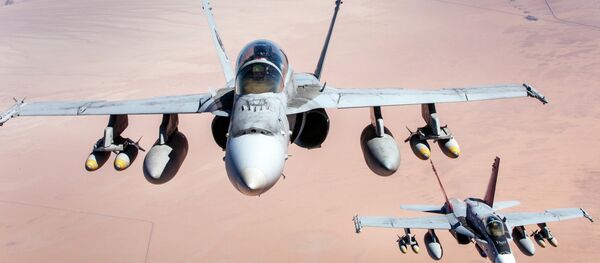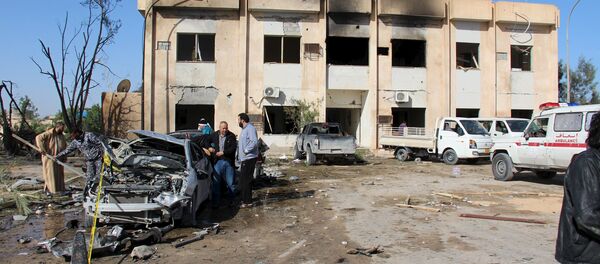Initially, in late December 2015 UK Defense Secretary Michael Fallon announced that London would send up to 1,000 British troops to the war-torn country.
According to the plan, the British contingent would form part of a 6,000-strong joint force with Italy. The initiative was supposed to get under way after the signing of the UN-sponsored "peace deal" aimed at creating a unified representative government in Libya.
However, there is many a slip between the cup and the lip. The formation of a unity government in Libya has been dealt a heavy blow on Monday when the Tobruk-based House of Representatives (HOR) — the internationally recognized Libyan parliament —rejected the UN-backed unity government, British journalist Richard Nield notes in his opinion piece for Al Jazeera.
It was expected that a new unity government would send an official request for military assistance to NATO. Now it seems that the plan is falling apart at the seams.
Furthermore, the internationally recognized Libyan authorities demonstrate no "appetite" for inviting foreign military forces.
"Nobody is thinking about requesting foreign intervention at the moment. We are willing to fight [Daesh] ourselves," Ibrahim Dabbashi, Libya's ambassador to the UN, said last month, as quoted by Nield.
"The more you have attacks like this by ISIL [Daesh], the less the West will be inclined to wait for an invitation from the government," Toaldo underscored, as cited by the British journalist.
Meanwhile, the Obama administration and the Pentagon have clearly demonstrated their willingness to open a third front in the war against Daesh in Libya.
On January 22, US Department of Defense's media service DoD News reported that the US Chairman of the Joint Chiefs of Staff Gen. Joseph F. Dunford Jr. and his French counterpart Gen. Pierre de Villiers discussed a potential joint military operation against Daesh in Libya.
"It's fair to say we're looking to take decisive military action against ISIL [Daesh] [in Libya] in conjunction with a legitimate political process," Gen. Dunford said.
"[The Obama] administration officials say the campaign in Libya could begin in a matter of weeks. They anticipate it would be conducted with the help of a handful of European allies, including Britain, France and Italy," The New York Times reports, expressing concerns that the new military intervention is being planned without a meaningful debate in the US Congress.
NATO's new Libyan campaign looks especially sinister since the Western powers are going to attack the very same Libyan Islamists they backed during the 2011 military campaign, Bangkok-based geopolitical analyst Tony Cartalucci notes in his latest article for New Eastern Outlook.
The analyst refers to the fact that US Ambassador to Libya John Christopher Stevens (murdered in Benghazi in 2012) was known for working closely with Tripoli Military Council head Abdelhakim Belhadj.
"Belhadj was quite literally the leader of US State Department-listed foreign terrorist organization, the Libyan Islamic Fighting Group (LIFG) — Al Qaeda in Libya. Despite his obvious ties to al-Qaeda, he was openly backed by the US during the 2011 Libyan War, and afterward, was posing for pictures with US senators including Arizona senator John McCain in the aftermath of NATO's regime change operations," the analyst narrates.
"LIFG's leader, Abdelhakim Belhadj, is now reportedly also a senior leader of ISIS [Daesh] in Libya," Cartalucci emphasizes.
According to the geopolitical analyst, Washington and its NATO allies have deliberately created a vicious cycle of war in North Africa and the Middle East in order to pursue their own economic, military and geopolitical goals.
"With the US-British and European intervention in a destroyed Libya overrun by terrorists… we see fully the danger of entrusting other nations to a similar fate wrought by Western intervention — most notably Syria," Cartalucci concludes.






